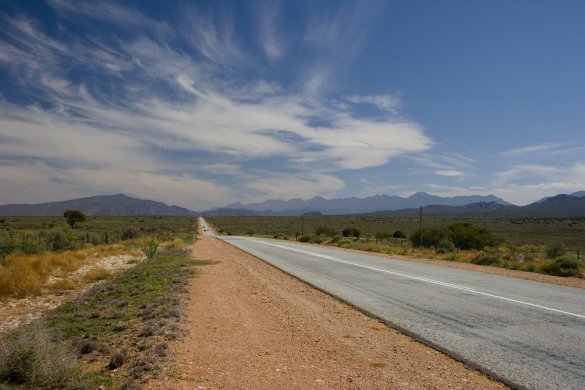- Road planning
- Road design
- Road construction
- Transport regulation
- Transport operation
- Traffic management
- Fleet services
If you’re interested in the “how” of transport and have problem-solving skills, you may find your niche as a transport economist. Transport economics is the study of the movement of people and goods over space and time. The aim is to work out the best ways of allocating resources so that the supply of transport services most effectively meets the demand.
Careers as a transport economist
Once you’re qualified, you can look forward to an interesting and challenging career in transport. These careers might interest you:
- An economist or planner for companies dealing with maritime, oil and gas sector, and engineering.
- A strategic manager in transport planning in government working on documents such as the Provincial Sustainable Transport Programme.
- Researcher or lecturer.
Starting at high school
If you are keen on transport economics as a potential career, you should do high school subjects that will help you gain admission into this field of study. As an example, here are the current requirements for admission to the Stellenbosch University BCom Economic Science programme with Transport Economics as a focal area:
- Selection mark of 65%
- Mathematics 60%
- English Home Language 50% OR Afrikaans Home Language 50% OR Afrikaans First Additional Language 60% OR English First Additional Language 60%
Selection mark details
Your final Grade 11 average (excluding Life Orientation) is used if you are currently in Grade 12. Your final Grade 12 average (excluding Life Orientation) is used if available. This average is your selection mark.
If you have more than six university admission subjects:
- the six highest marks are used for the average, and
- Mathematics and either English or Afrikaans must be among the six subjects.
If you have fewer than six university admission subjects:
- at least four subjects are used for the average, and
- Mathematics and either English or Afrikaans must be among the four subjects.
A person who completes the three-year undergraduate degree at this university may study further by applying for admission to BComHons and MComHons in Transport Economics.
- Read more about the Transport Economics qualification on Stellenbosch University’s website.
Financial and non-financial support
We offer bursaries to those studying towards this qualification through our Masakh’iSizwe bursary programme at one of these higher education institutions (HEIs):
The bursary covers tuition fees, all prescribed books and materials, and accommodation and meals (or transport costs). We also help students cope socially and academically at the HEI of their choice.
- Study with a Masakh’iSizwe bursary
Read more about transport projects at the Department of Infrastructure
- Western Cape Department of Infrastructure Budget 2023
- Department of Infrastructure Annual Performance Plan 2023-2024
- Provincial Sustainable Transport Programme
Watch: What form of transport is most convenient for you?

